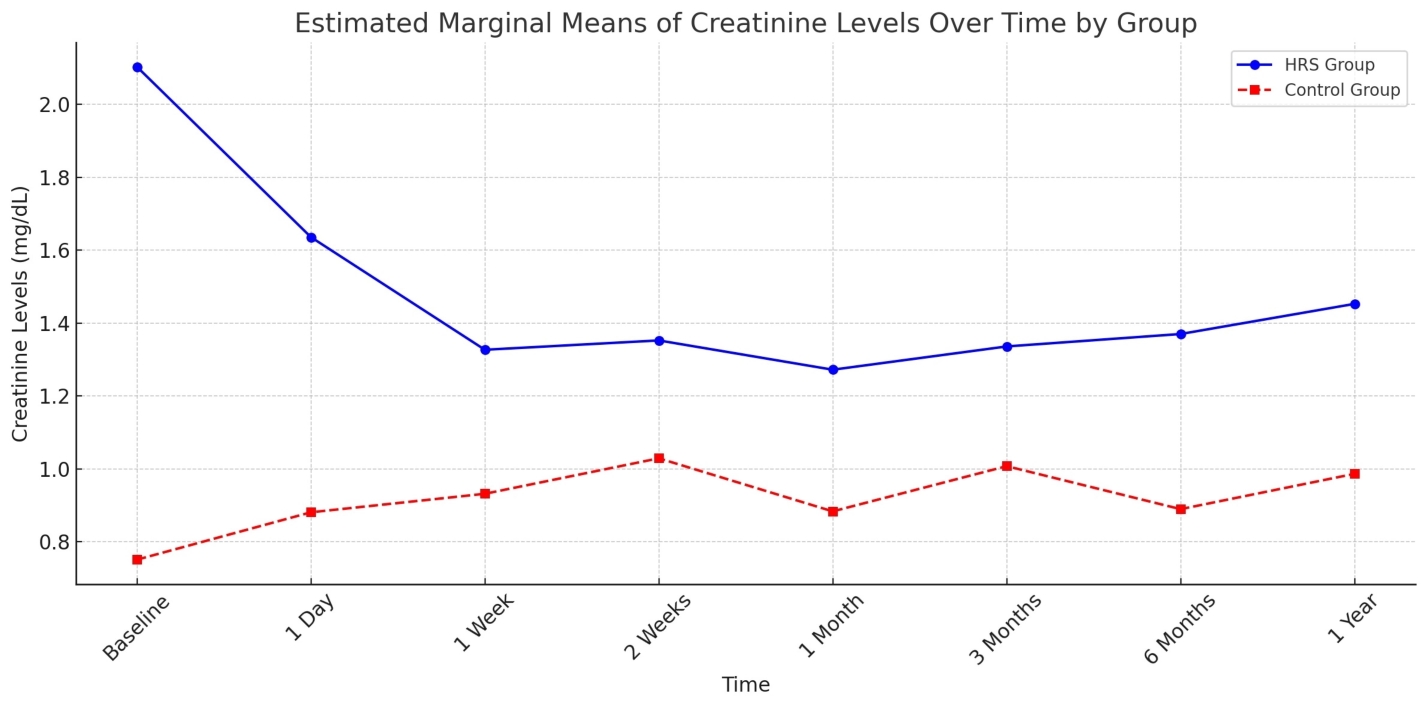Evaluating post-liver transplantation outcomes in hepatorenal syndrome: Insights from a small volume center study
Jaehun Yang1, Doo-Ho Lee1, Doojin Kim1, Yeon Ho Park1.
1General Surgery, Gachon University Gil Medical Center, Incheon, Korea
Background: Hepatorenal syndrome (HRS) poses significant challenges after liver transplantation (LT), with clinical outcomes showing considerable variability. This variability is especially pronounced in small volume centers, where resources and expertise may differ from larger institutions. Our study aims to evaluate the clinical outcomes of HRS patients post-LT at our center, with a specific focus on renal function recovery as indicated by creatinine levels.
Methods: We conducted a retrospective analysis of 192 patients who underwent liver transplantation at our center from June 2005 to September 2022. The cohort was divided into two groups: 67 patients with HRS and 125 without HRS. We collected data on patient demographics, type of liver transplant received, post-operative management strategies, and follow-up data. The primary outcomes measured were patient survival rates and renal function recovery, as indicated by creatinine levels at various time points post-transplantation.

Results: Of the 192 patients enrolled, 67 were diagnosed with HRS, and 125 were non-HRS. The analysis of creatinine levels showed a dramatic initial recovery in renal function post-transplantation, with a significant reduction in differences between the two groups. However, at the 6-month and 1-year marks, the creatinine levels again showed significant differences between the groups, indicating a divergence in renal function recovery over the longer term.
Conclusions: Our findings suggest that liver transplantation is a viable treatment option for HRS patients in a small volume center, with an initial promising recovery in renal function as indicated by creatinine levels. However, the disparity in long-term renal function recovery between the groups becomes more pronounced at 6 months and beyond post-transplantation. These results underscore the importance of specialized post-operative care and long-term monitoring in managing HRS patients post-transplantation. Further studies are needed to optimize treatment protocols and improve patient outcomes in similar settings.
[1] Liver transplantation
[2] Hepatorenal syndrome
